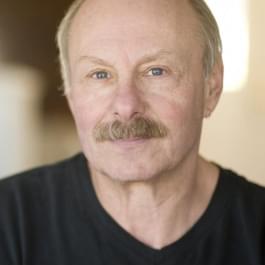
James Howard Kunstler: Adapting To The End Of The World As We Know It
Author James Howard Kunstler discusses the end of the world as we know it and how the thinking class has gone nuts. He faults our unsustainable energy policies and how the “shale revolution” has only served to extend and pretend the collapse of the oil-based economy and the unviable nature of suburbia. Neither will the”alt-energy freak show” of renewables and EVs save us. He covers food production, the electric grid, and feels we are on the cusp of an economic dam ready to burst and that beyond the election anything is possible (e.g. impasse, civil war). He comments on the Jacobin “wokester” cancel culture and identity politics movement and looks at ways we can adapt to the “long emergency.” Watch on BitChute / Brighteon / Rumble Geopolitics & Empire · James Howard Kunstler: Adapting To The End Of The World As We Know It #161 *Support Geopolitics & Empire! Become a Member https://geopoliticsandempire.substack.com Donate https://geopoliticsandempire.com/donations Consult https://geopoliticsandempire.com/consultation **Visit Our Affiliates & Sponsors! Above Phone https://abovephone.com/?above=geopolitics easyDNS (use code GEOPOLITICS for 15% off!) https://easydns.com Escape The Technocracy course (15% discount using link) https://escapethetechnocracy.com/geopolitics PassVult https://passvult.com Sociatates Civis (CitizenHR, CitizenIT, CitizenPL) https://societates-civis.com Wise Wolf Gold https://www.wolfpack.gold/?ref=geopolitics Show Notes Forecast 2020 — Whirlin’ and Swirlin’ https://kunstler.com/clusterfuck-nation/forecast-2020-whirling-and-swirlin Websites James Howard Kunstler https://kunstler.com Clusterfuck Nation Blog https://kunstler.com/writings/clusterfuck-nation KunstlerCast Podcast https://kunstler.com/writings/podcast Books https://kunstler.com/writings/books Twitter https://www.twitter.com/Jhkunstler About James Howard Kunstler James Howard Kunstler says he wrote The Geography of Nowhere, “Because I believe a lot of people share my feelings about the tragic landscape of highway strips, parking lots, housing tracts, mega-malls, junked cities, and ravaged countryside that makes up the everyday environment where most Americans live and work.” Home From Nowhere was a continuation of that discussion with an emphasis on the remedies. A portion of it appeared as the cover story in the September 1996 Atlantic Monthly. His next book in the series, The City in Mind: Notes on the Urban Condition, published by Simon & Schuster / Free Press, is a look a wide-ranging look at cities here and abroad, an inquiry into what makes them great (or miserable), and in particular what America is going to do with it’s mutilated cities. This was followed by The Long Emergency, published by the Atlantic Monthly Press in 2005, is about the challenges posed by the coming permanent global oil crisis, climate change, and other “converging catastrophes of the 21st Century.” This was followed in 2012 by Too Much Magic: Wishful Thinking, Technology, and the Fate of the Nation which detailed the misplaced expectations that technological rescue remedies would fix the problems detailed in The Long Emergency. His 2008 novel, World Made By Hand, was a fictional depiction of the post-oil American future. It eventually became a four part series that included The Witch of Hebron, A History of the Future, and (forthcoming in June 2016), The Harrows of Spring. Mr. Kunstler is also the author of eight other novels including The Halloween Ball, An Embarrassment of Richesand Maggie Darling, a Modern Romance. He has been a regular contributor to the New York Times Sunday Magazine and Op-Ed page, where he has written on environmental and economic issues. Mr. Kunstler was born in New York City in 1948. He moved to the Long Island suburbs in 1954 and returned to the city in 1957 where he spent most of his childhood. He graduated from the State University of New York, Brockport campus, worked as a reporter and feature writer for a number of newspapers, and finally as a staff writer forRolling Stone Magazine. In 1975, he dropped out to write books on a full-time basis. He has no formal training in architecture or the related design fields. He has lectured at Harvard, Yale, Columbia, Princeton, Dartmouth, Cornell, MIT, RPI, the University of Virginia and many other colleges, and he has appeared before many professional organizations such as the AIA , the APA., and the National Trust for Historic Preservation. He lives in Washington County, upstate New York. *Podcast intro music is from the song “The Queens Jig” by “Musicke & Mirth” from their album “Music for Two Lyra Viols”: http://musicke-mirth.de/en/recordings.html (available on iTunes or Amazon)
From "Geopolitics & Empire"




Comments
Add comment Feedback